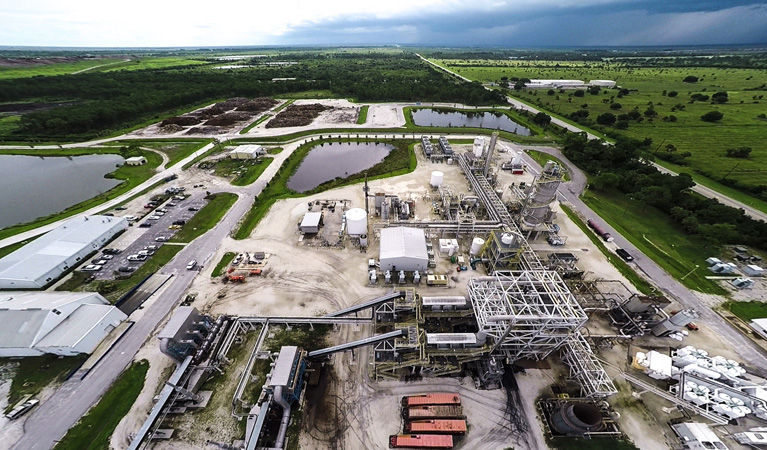
When the problem-plagued INEOS biofuel plant on Oslo Road closes, it will not only mark a major failure in the nationwide effort to ramp up bio-fuel production, but will also leave the county holding the bag in another sense – a bag full of yard waste. Lots of it.
Since it opened in 2013, the plant has had a contract with Indian River County to mulch and dispose of massive amounts of yard waste generated in the county each year. When it shuts down, the county will have to find another way to deal with the waste, but so far has no backup plan.
It’s “business as usual,” says County Utilities Director Vincent Burke, even though INEOS has announced plans to vacate the plant.
During FY 2014-2015, 64,287 tons of grass, weeds, landscape clippings and palm fronds were processed by INEOS at a cost to the county of $809,132. So far this fiscal year, 56,665 tons have been received.
The way the deal with the county worked, INEOS used mulch as feedstock in its attempt to make biofuel and also supplied the county up to 25,000 tons of mulch per year to use as landfill cover and for landscaping in various parks and golf courses.
County staff says INEOS so far is continuing to fulfill its mulching contract but large piles of unprocessed yard waste have accumulated at the mulching site.
Under the contract, when INEOS folds its tent, it is responsible for getting rid of any remaining waste, but … the company failed to live up to its promises in other regards, and has been secretive about its problems, so who knows?
INEOS Group Limited is a global manufacturer of petrochemicals based in the United Kingdom.
It sold government officials on its Indian River County plant, INEOS Bio, with promises to produce up to 8 million gallons of ethanol per year from fermenting yard waste.
These promises helped it secure $50 million from the U.S. Department of Energy, millions more from Gov. Rick Scott’s economic development team, as well as almost $1.2 million in county job incentives and tax credits.
In the three years since the grand opening, the plant was plagued by a series of miscues and malfunctions and never produced marketable quantities of ethanol, a fact state government officials and company executives attempted to conceal behind a cloak of secrecy that got thicker as time went on.



